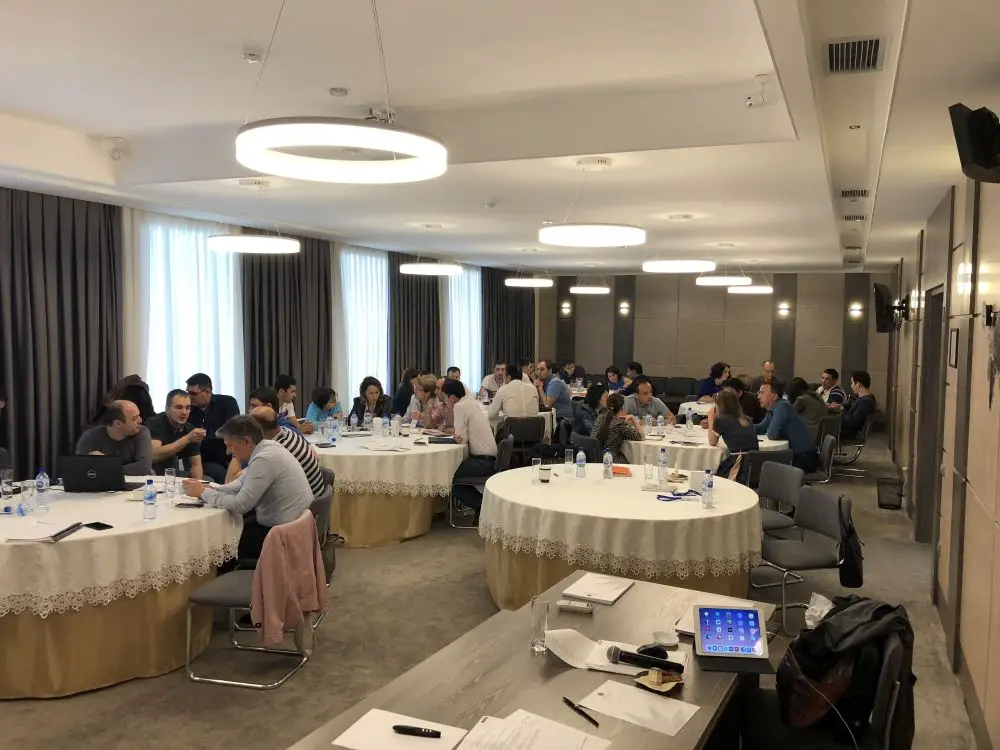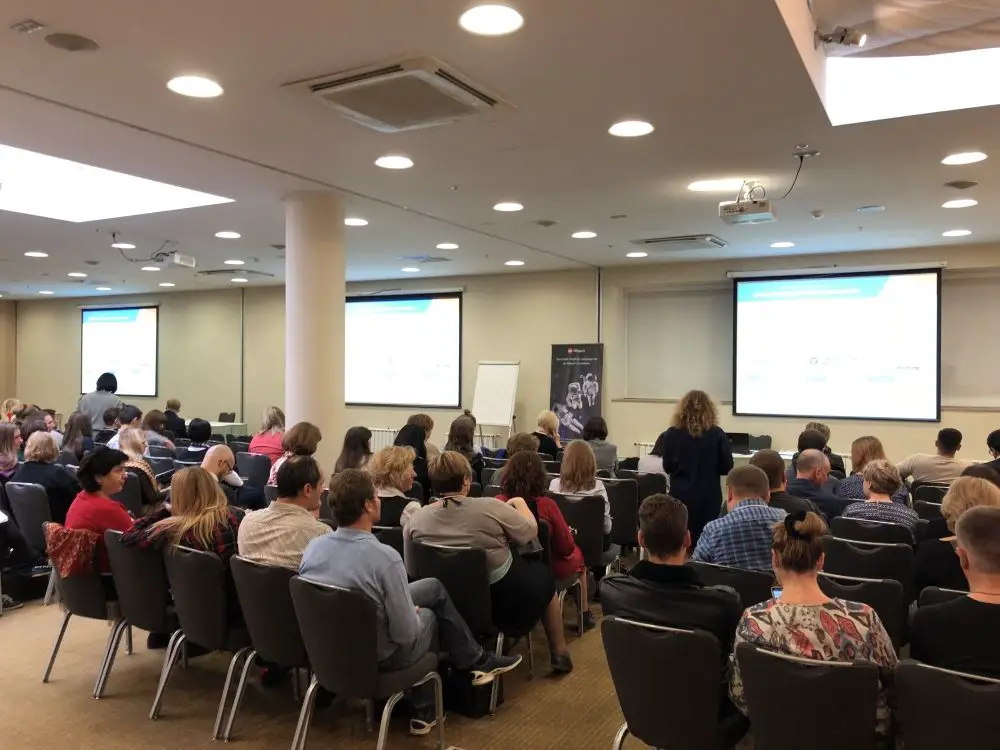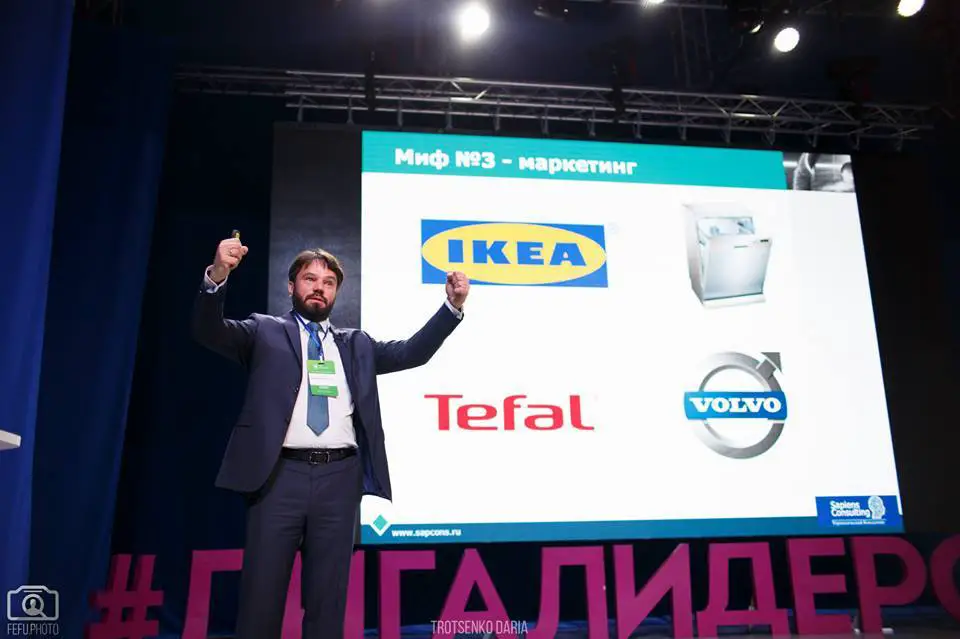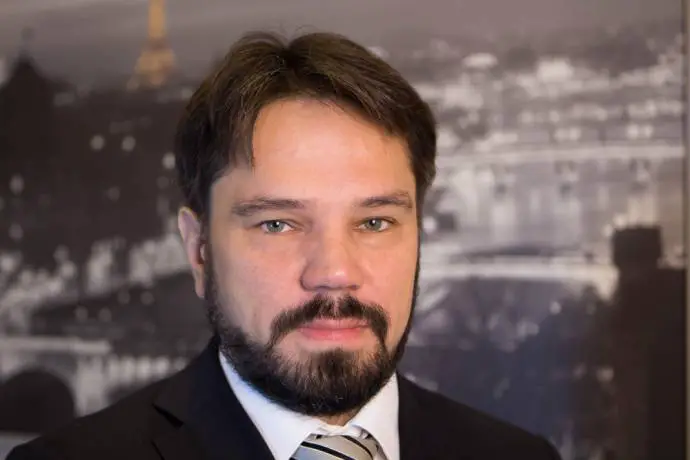May 28, 2018
My name is Svyatoslav, I am 44 years old, and from Russia. Almost two years ago my family moved to Slovenia and found a nice flat in the center of Ljubljana. My wife started her own business in Slovenia, she is an exclusive representative of a famous Russian company, Siberian Health, in this country. Siberian Health produces ecologically clean, environment friendly cosmetics. But it takes a little bit more time for me to launch my own business in the country.
Almost all my professional experience comes from business and management. I started my career back in 1994 as a sales rep, I worked for one of the first private businesses in Saint-Petersburg, Russia, the city I was born and grew up in. In 1997 I moved to Moscow, the capital, and joined the leading company in the domain of wholesaling. It was the golden age of Russian economy – the country had just opened itself to foreign markets, had just tasted the freedom of entrepreneurship. We all were very inexperienced but very enthusiastic. Every other day brought new challenges, but that was very cool, very interesting, very motivating.

Photo: Slava Biryulin
By 2005 I was promoted to the position of a general manager of the company, and in 2006 I became a managing partner. At the same time I got an MBA degree and believed that I knew everything about management. But in September of 2008 the large crisis started in Russia and I got a painful but very useful lesson – a general manager at the same time should be a visionary, a strategist, a leader and a day-to-day manager. All in one. Our market shrank significantly, down to 30%, and it was very difficult to our company to stay profitable and stable, but we managed it. Since than I had been working as a CEO of several other companies, but eventually, in 2015, I decided to launch my own consulting business. We focused on strategy and strategic marketing – the domains in which I had a lot of knowledge, competence and experience. Since 2015 a number of companies from former USSR republics have become our customers.
But it was not that easy to move my business from Russia to Slovenia. By 2017 I had become a rather famous consultant in Russia, I have published several books and a plenty of articles, I have a lot of customers ready to recommend me to their friends in colleagues. But in Slovenia in 2016 I was unknown foreigner, from the country which is not famous for its businesses. As a result, I spent much time in Russia, managing my local company, flying from Ljubljana to Moscow several times a month. At the same time I was trying to find a way to get some customers in Slovenia.
As I have already mentioned, it was not that easy. The approach to the business in Slovenia is a mix of western pragmatism and Slavic simplicity. Moreover, Slovenians are quite reserved people, not always ready to discuss their business problems with strangers. And, as it happens in any culture, mutual trust should arise between a potential customer and consultant before they are ready to discuss any business issues. Moreover, Slovenia is a small country, and there are few of large companies establishing long-term strategies. The majority of average and small companies are managed by the founders, and by intuition. And even though my Slovenian language has significantly improved, the negotiations with Slovenian businessmen were difficult.
But then I, by chance, found a subject that was interesting for a lot of Slovenian companies – the markets of former Soviet republics. As many Slovenian entrepreneurs say, the Russian market is third biggest for exports, after Western Europe and the Balkan countries. Some of the biggest Slovenian companies have already worked in Russia for many years. Many medium-sized companies would like to enter the Russian market (as well as markets of countries such as Ukraine, Belarus, Kazakhstan, Uzbekistan and so on), but consider it rather risky. They are not ready to do it without the help of a company which has experience of working there. And I thought that my company could become the one to do this. We used to live and work in those countries. We speak the local language. We understand the mentality of local entrepreneurs quite well. We know a lot about local legislation. We used to import goods from Europe to those countries, and know all the local features of custom procedures.
So we started promoting our company as a provider able to bring Slovenian (and, actually, not only Slovenian) business to Russia and neighboring markets. We offer several kinds of services for Slovenian firms – market research, searching for potential customers, primary negotiations with them. We are also ready to launch a so-called “virtual office” – an official representative office of our customer in Russia, but managed by our people. The main advantage of this approach is reducing the initial cost of entering the local market. At the beginning a customer may even not register a company in Russia, which requires some effort and money. We will take care of everything – we may collect a lot of useful information (which is hard to do when not inside the country), and it will be much cheaper and easier for the Slovenian company than doing it alone.

Photo: Slava Biryulin
We may receive phone calls and e-mails on behalf of the company, and take part in local exhibitions. By doing so, we may collect enough information for our customers to make the final decision – either to launch their own subsidiary in the country or collaborate with local dealers and distributors. We may help them to understand which products suit local markets, and choose a proper strategy to start a business in one of the former Soviet countries. Large companies (such as Krka and Gorenje) may do this by themselves, but for the majority of Slovenian producers our service may be a good chance to discover new markets without taking significant risks.
And our new strategy seemed to work. At the moment we have already had some Slovenian customers. The first one is DMA, Dimensional Management Architect, small company form Ljubljana which created a new IT solution for enterprises, a so-called Business Intelligence solution (BI). Our company, KVAN Consulting, has become its official representative and distributor in Russia and Ukraine. A second company is Lotrič Metrology, which would like to expand their business outside of the Balkan region, where they are very well-known. We are also holding negotiations with some companies from the former Soviet countries which aim to enter the Slovenian market. Currencies in the ex-Soviet nations have fallen recently, compared to the Euro, so some products from those countries have become more attractive for European customers. Surprisingly for us, a couple of companies from Western Europe have also expressed interest in our services in Slovenia.

Photo: Slava Biryulin
The world is getting global – but still there are a lot of obstacles for some companies when entering new markets. It is thus often considered to be too risky. Sometimes is true, but in some cases the level of risk may easily be reduced by getting well prepared. Deep market research, initial negotiation with potential customers and careful evaluating the risk and possibilities, made by people who understand the local mentality and culture, may significantly shorten the way to the new markets, and that’s what I’m trying to do in Ljubljana.
You can learn more about Svyatoslav Biryulin’s work at KVAN Consulting here, and if you’d like to share your story as an entrepreneur in Slovenia, please get in touch at This email address is being protected from spambots. You need JavaScript enabled to view it.



